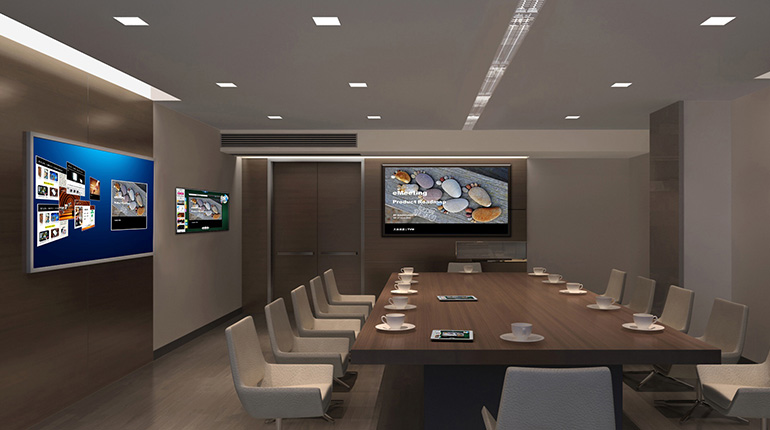The modern workplace changed dramatically in recent years, thanks in large part to advances in modern technology. Traditionally, employees relied on deficient methods for completing tasks, such as following manual processes or using outdated tools. Now, they can use computers, smartphones, and other digital devices to complete their work more efficiently and effectively. While this change has certainly made life easier for employees, it is challenging to keep up with the latest technology trends. In this post, we will look at some of the most important technological innovations that impact the way we work. We will also explore ways businesses can make sure their workforce stays current with these rapidly evolving technologies.
10 Ways Technology Has Reshaped the Modern Workplace:
1. Communication and Collaboration
In the past, employees typically communicated with one another in person or via telephone. However, today’s workforce is more distributed than ever before, with employees working remotely from all over the world. Thanks to instant messaging applications, video conferencing tools, and other collaborative technology, it’s now easier than ever for employees to stay in touch and work together on projects, regardless of location.
2. Cloud Computing
The cloud had a major impact on the way businesses operate. With cloud-based applications and services, businesses can access data and applications from any location and share them with employees across the globe. This helps to improve efficiency and productivity by giving employees the ability to work from anywhere at any time.
3. Mobile Devices
Smartphones, tablets, and other mobile devices transformed the way we live and work. With these devices, employees can stay connected to work tasks and colleagues no matter where they are. Mobile devices also make it possible for businesses to offer their employees more flexible working arrangements, such as the ability to work from home or on the go.
4. Social Media
Social media platforms like Facebook, Twitter, and LinkedIn changed the way businesses communicate with their customers and clients. These platforms provide a quick and straightforward way to share news, announcements, and exclusive offers with a large audience. They also allow businesses to engage directly with their customers and get feedback in real-time.
5. Big Data
Businesses today have access to more data than ever before, thanks to advances in technology. They can use this data to improve decision-making, target marketing efforts, and personalize the customer experience. However, managing all this data can be a challenge. That is where big data analytics comes in. With the help of big data analytics tools, businesses can make sense of large data sets and uncover valuable insights that they can use to improve operations.
6. Cybersecurity
As businesses become increasingly reliant on technology, they also become more vulnerable to cyber threats. Hackers are constantly looking for new ways to break into systems and steal sensitive data. To protect themselves, businesses must invest in strong cybersecurity measures, such as firewalls, intrusion detection systems, and data encryption.
7. Artificial Intelligence
Artificial intelligence (AI) is a rapidly growing field that has the potential to transform the way businesses operate. Businesses can use AI to automate tasks, improve decision-making, and personalize the customer experience. In the future, AI will become more prevalent in the business world. Therefore, businesses need to stay up to date on the latest AI developments.
8. Internet of Things
The internet of things (IoT) refers to the growing network of devices that connect to the internet. This includes everything from smartphones and laptops to appliances and automobiles. The IoT is changing the way businesses operate by providing them with real-time data and insights. By leveraging the IoT, businesses can improve efficiency, optimize operations, and create new revenue streams.
9. Augmented Reality
Augmented reality (AR) is a technology that overlays digital information in the real world. This can provide employees with instructions or information about their work tasks. AR can also create immersive customer experiences. For example, IKEA’s app allows shoppers to see how furniture will look in their homes before they buy it. In the future, AR will become more commonplace in the business world as more companies look for ways to use it to improve operations and enhance the customer experience.
10. 3D Printing
3D printing is a rapidly evolving technology that can change the way businesses operate. With 3D printing, businesses can create prototypes and products in-house, which can save time and money. 3D printing can create customized products for customers. In the future, 3D printing will become more commonplace in manufacturing and other industries as the technology continues to evolve.
Conclusion
Technology has transformed the modern workplace. With the help of technology, businesses can operate more efficiently, engage with their customers, and create new revenue streams. However, managing all this technology can be a challenge. That is why businesses need to stay up to date on the latest technology trends and developments. The above are just some of the ways that innovative technology has changed the modern workplace. As technology continues to evolve, we can expect even more changes in the years to come.

